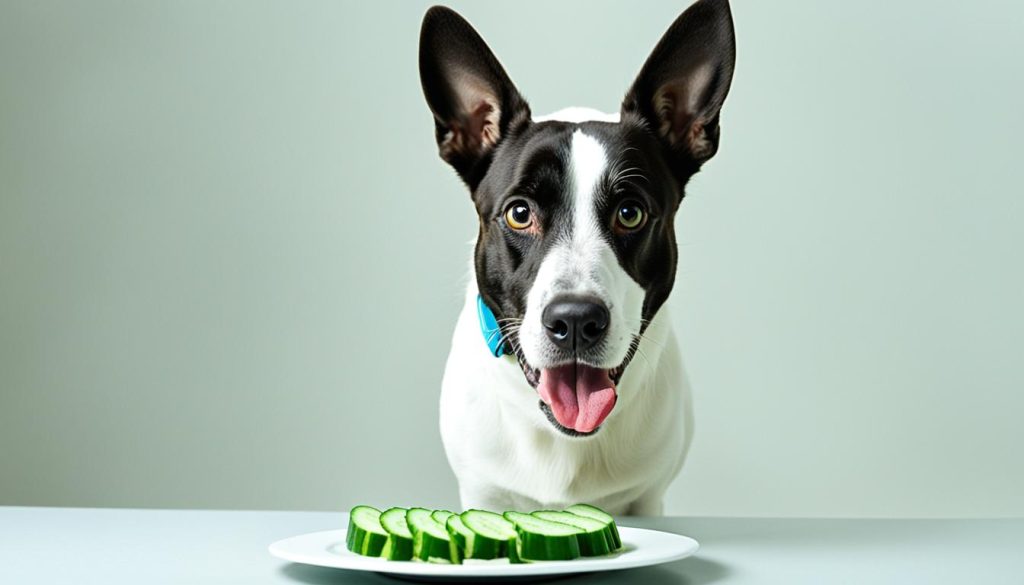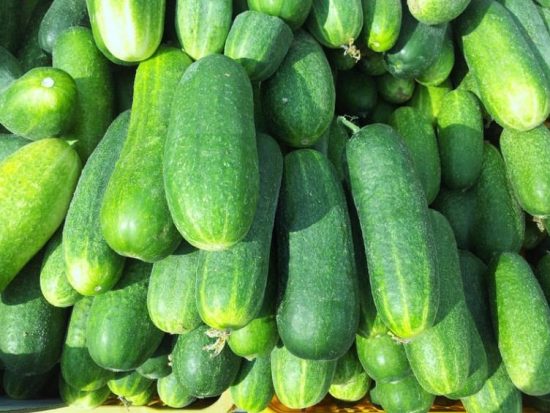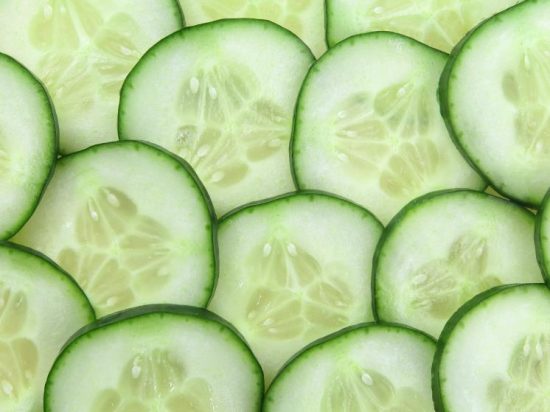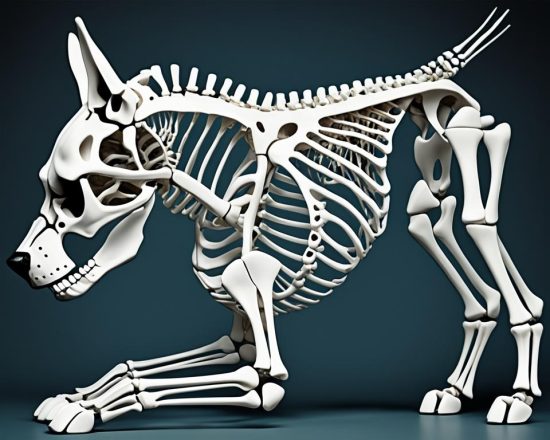Can Dogs Eat Cucumbers? A Comprehensive Guide
Discover if cucumbers are safe for your furry friend. This guide delves into benefits, serving sizes, and more on feeding dogs cucumbers.

Are you curious if cucumbers are safe for your canine companion to consume? This comprehensive guide will provide you with all the information you need to know about feeding cucumbers to dogs. From the potential benefits to possible risks, safe feeding practices, and nutritional benefits, we’ve got you covered. By the end of this guide, you’ll have a clear understanding of can dogs eat cucumbers. So, let’s dive in and explore the fascinating world of dogs and cucumbers!
Understanding the Benefits of Cucumbers for Dogs

Cucumbers are low in calories and packed with hydration, making them a nutritious choice for dogs. They are also a great source of vitamins and minerals, including vitamin K, vitamin C, and potassium. The high water content in cucumbers can help keep your dog hydrated, especially during hot summer months.
While cucumbers are generally safe for dogs to eat, it’s important to be mindful of the potential choking hazard they pose. To minimize the risk, always slice cucumbers into bite-sized pieces before offering them to your dog. This will make it easier for your dog to chew and swallow without the risk of choking.
When it comes to serving sizes for cucumber treats, it’s crucial to consider your dog’s size and dietary needs. As a general guideline, small dogs can have a few cucumber slices or cubes as a treat, while larger dogs can enjoy a more substantial portion. However, it’s always best to consult with your veterinarian to determine the appropriate serving size for your specific dog.
How to Start Right?
If you’re introducing cucumbers as a new treat for your dog, it’s important to do so gradually. Start by offering small pieces of cucumber and observe how your dog responds. Some dogs may take to the new treat immediately, while others may need some time to adjust to the taste and texture.
Remember always to monitor your dog’s reaction when introducing any new food. If you notice any signs of digestive upset, such as vomiting or diarrhea, discontinue the cucumber treats and consult with your veterinarian.
Now that we’ve explored the benefits of cucumbers for dogs, addressed the choking hazard, and discussed the proper serving sizes, it’s time to move on to the next section where we’ll dive deeper into the question: Are cucumbers good for dogs?
Are cucumbers beneficial to dogs?

Cucumbers are a low-calorie food, making them a great option for dogs that need to maintain a healthy weight. The high water content in cucumbers can help keep your dog hydrated, especially during hot summer months or after vigorous exercise.
Cucumbers are also rich in important vitamins and minerals contributing to overall health. They contain vitamin K, which supports proper blood clotting, and vitamin C, which is an antioxidant that boosts the immune system. Additionally, cucumbers provide minerals such as magnesium, potassium, and manganese.
Feeding cucumbers to your furry friend can provide a crunchy texture that many dogs enjoy. You can offer them as a standalone treat or incorporate them into homemade recipes for a refreshing and nutritious twist. Just be sure to wash the cucumbers thoroughly and remove any potential choking hazards, such as seeds or large chunks.
Cucumbers are generally safe for dogs to eat in moderation. However, as with introducing any new food into your dog’s diet, it’s important to monitor their reaction. Some dogs may have difficulty digesting cucumbers or may experience an upset stomach. If you notice any adverse reactions, it’s best to consult with your veterinarian.
To give you a better visual idea of the nutritional content of cucumbers, refer to the table below:
| Nutrient | Amount per 100g |
|---|---|
| Calories | 15 |
| Water | 95% |
| Vitamin K | 16.4 mcg |
| Vitamin C | 2.8 mg |
| Magnesium | 13 mg |
| Potassium | 147 mg |
| Manganese | 0.079 mg |
Always remember to introduce new foods gradually and in moderation, and tailor your dog’s diet to their specific needs and dietary restrictions. If you have any concerns or questions about feeding cucumbers or any other food to your dog, consult with your veterinarian for professional advice.
Safe Feeding Practices for Cucumber Treats
When it comes to offering cucumber treats to your furry friend, it’s important to follow safe feeding practices. This ensures that your dog can enjoy the refreshing and nutritious benefits of cucumbers without any potential risks.
Preparing Cucumbers: To Peel or Not to Peel?
One common question that arises when feeding cucumbers to dogs is whether to peel them before offering them as a treat. The answer depends on your dog’s preferences and digestion. If your dog enjoys the texture and taste of cucumber skin, it’s generally safe to leave the peel on. However, if your dog has trouble digesting the peel or if you have concerns about pesticide residue, it’s best to peel the cucumber before feeding.
The Right Way to Slice Cucumbers for Dogs
When serving cucumbers to your dog, it’s important to slice them into appropriate sizes to minimize the risk of choking. It’s recommended to cut cucumbers into thin slices or small cubes, making it easier for your dog to chew and swallow safely. Avoid offering large chunks of cucumber as they may pose a choking hazard.
Avoiding the Risks of Cucurbitacin
Cucurbitacin is a naturally occurring toxic compound found in some cucumbers. While most cucumber varieties available in stores are safe for dogs, it’s crucial to be aware of the signs and symptoms of cucurbitacin poisoning, including gastrointestinal distress and vomiting. To minimize the risk, it’s recommended to choose fresh, high-quality cucumbers from reputable sources and avoid feeding wild or ornamental cucumbers to your dog.
Can Dogs Eat Cucumbers?
Throughout this comprehensive guide, we have explored the topic of whether dogs can eat cucumbers. We have discussed the benefits of cucumbers for dogs, addressing potential risks such as choking hazards and the presence of cucurbitacin. We have also provided safe feeding practices and serving sizes for cucumber treats, as well as nutritional information highlighting the hydrating, low-calorie, and fiber-rich nature of cucumbers.
In summary, dogs can indeed eat cucumbers as an occasional treat, as long as they are prepared and served properly. However, it is important to consider your individual dog’s preferences, dietary restrictions, and any specific health conditions before introducing cucumbers into their diet. As with any new food, it is advisable to start with small portions and monitor your dog’s response. If you have any concerns or questions, always consult with your veterinarian for personalized guidance.
To further illustrate the benefits and preparation of cucumbers for dogs, take a look at the table below:
| Serving Size | Benefits | |
|---|---|---|
| 1 cup sliced |
|
Nutritional Benefits of Cucumbers for Canines
Cucumbers are not only a refreshing and tasty snack for humans but can also provide several nutritional benefits for our furry friends. Including cucumbers in your dog’s diet can offer a range of vitamins, minerals, hydration, and low-calorie treats, as well as promote digestive health.
Vitamins and Minerals Present in Cucumbers
Cucumbers are a rich source of vitamins and minerals that are essential for your dog’s overall well-being. They contain vitamin K, which helps with blood clotting and bone health. Cucumbers also provide vitamin C, an antioxidant that boosts the immune system and supports collagen production for healthy skin and joints.
In addition to vitamins, cucumbers contain minerals such as potassium, manganese, and magnesium. Potassium is vital for maintaining proper heart and muscle function, while manganese supports healthy bone formation. Magnesium contributes to nerve function and energy metabolism in dogs.
By incorporating cucumbers into your dog’s diet, you can provide them with a variety of essential vitamins and minerals that promote their overall health and well-being.
Hydration and Low-Calorie Treats for Dogs
Cucumbers consist of approximately 95% water, making them an excellent choice for keeping your dog hydrated, especially during hot summer months. Staying adequately hydrated is crucial for good health, as it helps regulate body temperature, aids digestion, and promotes healthy organ function.
Furthermore, cucumbers make for a refreshing and low-calorie treat for dogs on weight management or those prone to weight gain. With only a few calories per serving, they can be a guilt-free option for rewarding your furry friend without contributing to excessive weight gain.
Fiber and Digestive Health for Your Pet
Cucumbers are also high in dietary fiber, which is essential for maintaining a healthy digestive system in dogs. The fiber content in cucumbers helps regulate bowel movements, prevent constipation, and promote optimal gut health.
Feeding your dog fiber-rich foods like cucumbers can also aid in weight management by providing a feeling of fullness without adding excess calories. Additionally, a healthy digestive system is crucial for absorption and utilization of nutrients from other foods in their diet.
Overall, cucumbers offer numerous nutritional benefits for dogs. They contain an array of vitamins and minerals, contribute to hydration, serve as low-calorie treats, and support digestive health. By adding cucumbers to your dog’s diet, you can enhance their nutrition and overall well-being.
Understanding Cucumber Portions for Different Dog Sizes
When feeding cucumbers to your furry friend, it’s important to consider their size and weight. The right portion of cucumbers can ensure that your dog enjoys this refreshing treat without any digestive issues or discomfort.
For small dogs weighing between 10-25 pounds, a suitable cucumber portion would be approximately half a cucumber, sliced into small, bite-sized pieces. This ensures that your small dog can easily consume the cucumber without any choking hazards.
Medium-sized dogs weighing between 25-50 pounds can enjoy a bit more cucumber. You can offer them a whole cucumber, sliced into manageable pieces, or around 1 to 1.5 cups of chopped cucumber.
Large dogs weighing over 50 pounds can have even more cucumber. You can offer them one to one and a half whole cucumbers, sliced into appropriate portions for their size. Make sure to monitor their digestion and adjust the portion size accordingly.
It’s essential to remember that cucumbers should only be given in moderation and as an occasional treat. While cucumbers are generally safe for dogs, overfeeding can lead to digestive upset and discomfort. Always consult with your veterinarian if you have any concerns or questions about the appropriate cucumber portion for your dog’s specific needs.
To summarize, the appropriate cucumber portion for different dog sizes is:
- Small dogs (10-25 pounds): Approximately half a cucumber, sliced into small, bite-sized pieces.
- Medium-sized dogs (25-50 pounds): A whole cucumber, sliced into manageable pieces, or around 1 to 1.5 cups of chopped cucumber.
- Large dogs (over 50 pounds): One to one and a half whole cucumbers, sliced into appropriate portions for their size.
Can Dogs Eat Cucumber Seeds?
Ingesting cucumber seeds is a common concern among dog owners. While cucumbers themselves are generally safe for dogs to consume, the seeds can pose potential problems. The main issue with cucumber seeds is the risk of choking or intestinal blockage if dogs ingest a large quantity or if they are unable to properly digest them.
Ingesting Seeds: Potential Problems and Solutions
If a dog ingests cucumber seeds, several potential problems can arise. The seeds may become lodged in the throat, causing choking or discomfort. In some cases, the seeds can also lead to intestinal blockage, resulting in serious health issues that may require veterinary intervention.
To minimize the risks associated with cucumber seeds, it is essential to monitor your dog while they are eating cucumbers. If you notice any signs of choking or discomfort, such as gagging, coughing, or difficulty in breathing, seek immediate veterinary attention.
Seedless Cucumbers: A Safer Option?
Another option to consider is feeding your dog seedless cucumbers. Seedless cucumbers, also known as English cucumbers or hothouse cucumbers, are cultivated varieties that have been bred to produce fewer or no seeds. These types of cucumbers are generally considered safer for dogs since they eliminate the risk of ingesting seeds altogether.
When choosing seedless cucumbers for your dog, always ensure that they are fresh, firm, and free from any signs of spoilage. Wash the cucumbers thoroughly before serving, and consider slicing them into safe, bite-sized pieces for your dog to enjoy.
| Cucumber Varieties | Seeds | Risk |
|---|---|---|
| Regular Cucumbers | Yes | Potential choking hazard and intestinal blockage |
| Seedless Cucumbers | No or significantly fewer seeds | Lower risk of choking and blockage |
Refreshing Cucumber-Based Dog Treat Ideas

If you’re looking for creative and refreshing treats to keep your dog cool and satisfied during hot weather, look no further than cucumber-based dog treats. Cucumbers are not only hydrating but also packed with essential vitamins and minerals that contribute to your dog’s overall health.
There are numerous ways to incorporate cucumbers into homemade dog treats. Whether you’re searching for a simple recipe or a more elaborate treat, these cucumber-based ideas are sure to please your furry friend:
- Cucumber Watermelon Popsicles: Combine sliced cucumbers and watermelon in an ice tray, fill it with water, and freeze. This sweet and refreshing treat will keep your dog cool on hot summer days.
- Cucumber Carrot Bites: Slice cucumbers and carrots into bite-sized pieces. Arrange them on a tray and freeze. These crispy snacks are perfect for teething puppies.
- Cucumber Yogurt Bites: Dip cucumber slices into plain yogurt and freeze until set. The combination of cool cucumber and creamy yogurt will make your dog drool.
- Cucumber Apple Smoothie: Blend cucumber slices and diced apples with water or low-sodium broth. Pour the mixture into ice cube trays and freeze. This smoothie is a refreshing and nutritious treat.
- Cucumber Pup-sicles: Blend cucumbers, blueberries, and a dash of water or coconut water. Pour the mixture into silicone molds and freeze. These colorful pup-sicles are guaranteed to be a hit.
- Cucumber Mint Ice Cream: Puree cucumbers, Greek yogurt, and fresh mint leaves until smooth. Pour the mixture into a container and freeze. This delightful frozen treat will have your dog wagging their tail in delight.
Cucumber-based dog treats offer a refreshing way to reward your furry friend while providing them with essential hydration and nutrients. Remember to always consider your dog’s size and dietary restrictions when introducing new treats into their diet. These homemade treats are best served in moderation as part of a balanced canine diet.
So, why not try these cucumber-based dog treats and give your pup something delicious and healthy to enjoy?
The Question of Cucumbers Raw with Skin
To Skin or Not to Skin: What’s Best for Your Dog?
When it comes to feeding your dog raw cucumbers, one question that often arises is whether or not to remove the skin. While cucumbers are safe for dogs to consume, the decision to peel them or leave the skin intact depends on a few factors.
Raw cucumbers with skin can provide additional fiber, vitamins, and minerals, making them a healthy option for your furry friend. The skin contains nutrients such as vitamin C and K, as well as beneficial phytonutrients. These nutrients can support your dog’s immune system, promote healthy digestion, and contribute to their overall well-being.
However, it’s important to note that some dogs may have difficulty digesting the cucumber skin, especially if they have a sensitive stomach or gastrointestinal issues. In these cases, peeling the cucumbers can make them easier to digest and reduce the risk of gastrointestinal upset.
Raw Cucumber Snacks: Keeping It Safe and Healthy
If you choose to feed your dog raw cucumber snacks with the skin, it’s crucial to take a few precautions to ensure their safety and maintain their nutritional value:
- Always wash the cucumbers thoroughly before feeding them to your dog. This helps remove any dirt, debris, or potential chemical residue.
- Choose organic cucumbers whenever possible to minimize pesticide exposure.
- Remove any seeds from the cucumbers before feeding them to your dog. Cucumber seeds can pose a choking hazard, especially for small or toy breeds.
- Cut the cucumbers into appropriately sized pieces to prevent choking. For small dogs, bite-sized slices or cubes are ideal.
- Offer cucumbers in moderation as part of a balanced diet. While cucumbers can be a healthy snack, they should not replace other essential nutrients in your dog’s diet.
| Cucumber Treat Preparation | Advantages |
|---|---|
| Raw Cucumbers with Skin |
|
| Peeled Cucumbers |
|
Why Do Dogs Like Cucumbers So Much?
It’s no secret that dogs have a penchant for certain foods, and cucumbers seem to be one of their favorites. But why do dogs enjoy this crunchy vegetable so much? Let’s dig deeper into the factors that contribute to their preference for cucumbers.
One possible reason is taste. Cucumbers have a mild taste that is refreshing and satisfying, making them an appealing snack for dogs. The natural sweetness and subtle flavor of cucumbers may be enticing to their taste buds.
Texture is another factor that may explain why dogs like cucumbers. The crisp and crunchy texture of cucumbers provides a satisfying chewing experience, which can be enjoyable for dogs. It also offers a different mouthfeel compared to their regular diet, adding variety and excitement to their meals.
Health benefits could also play a role in why dogs are drawn to cucumbers. Cucumbers are low in calories and high in water content, making them a healthy and hydrating treat for dogs. The vitamins and minerals present in cucumbers, such as vitamin K and potassium, can contribute to their overall well-being.
FAQs on can dogs have cucumbers
Can dogs eat cucumbers raw with the skin?
Yes, dogs can eat cucumbers raw with the skin. However, it’s essential to wash them thoroughly to remove any pesticides or dirt that may be present.
How much cucumber can I give my dog?
The amount of cucumber you can give your dog depends on their size. As a general guideline, small dogs can have a few slices, while larger dogs can have a whole cucumber. It’s best to start with a small amount and monitor their reaction before increasing the serving size.
Why do dogs like cucumbers so much?
Dogs may enjoy cucumbers because of their crunchy texture and mild taste. Additionally, cucumbers are hydrating and low in calories, making them a refreshing and healthy treat for dogs.
What vegetables can dogs eat?
Dogs can eat a variety of vegetables, including cucumbers, carrots, green beans, and pumpkin. However, it’s important to introduce new vegetables gradually and in moderation to avoid digestive upset.





